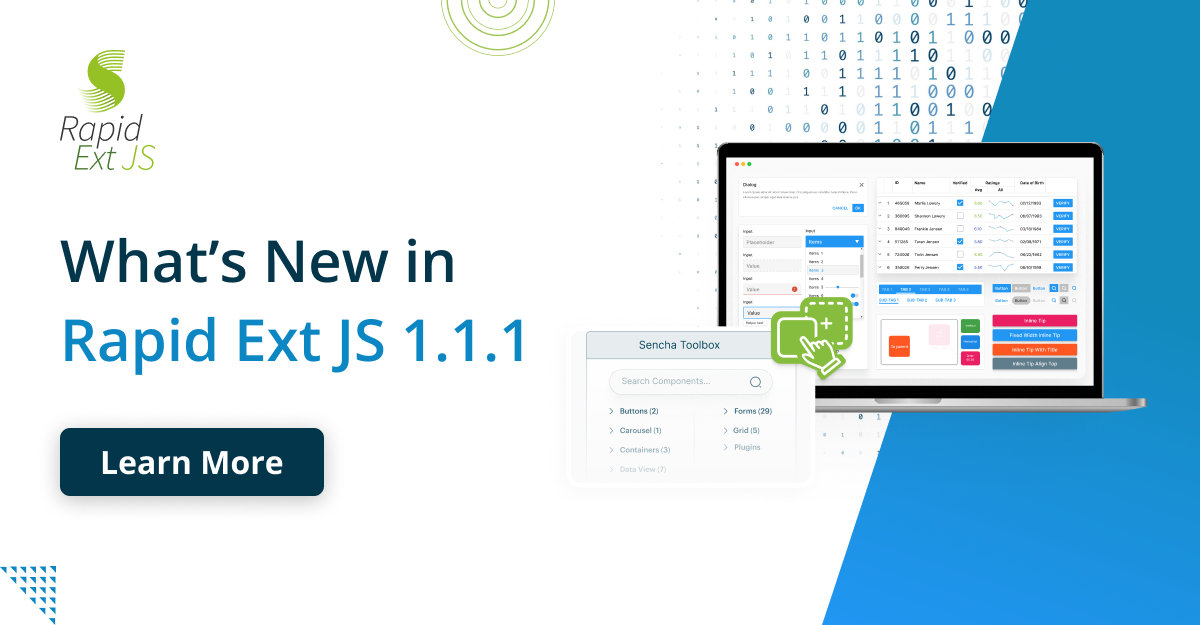Automation Testing: Unit Testing Tools

Software testing is an essential element of the software development process. It enables developers to identify bugs and issues early in the development cycle and correct them before releasing the software to the public. There are several different types of tests related to the functionality, security, usability, and performance of the software. The most basic level of testing is unit testing, where developers test the individual units or components of the source code. Since developers need to test the code repeatedly in different scenarios, performing unit tests manually can be pretty time-consuming. As a result, most developers now use unit testing frameworks and unit testing tools to automate the testing process and save time.
In this article, we’ll discuss unit testing and its benefits. We’ll also show you some of the top unit testing tools and Javascript testing tools.
What Is Unit Testing?
Unit testing is a form of software testing where developers test individual components or units of the source code. In unit testing, we test every small piece or section of the code that can be isolated. A unit can be an individual function, module, method, object, or procedure.
The purpose of unit testing is to check if each unit of the code is working as intended. It allows developers to detect bugs and issues in code that can be more difficult to find in later testing stages. Unit testing is a part of TDD (test-driven development), a methodology that focuses on continuous or repeated testing of the software against all test cases.
Developers perform unit testing during the coding/development phase of the software or an application. It should be done correctly because inappropriate testing can affect integration testing, system testing, etc., and result in high costs. On the other hand, if done correctly, unit testing can help save time and money.
How Does Unit Testing work?
Typically, a unit test consists of three steps – planning, test cases, and writing unit tests. First, the test is created and reviewed. Next, the test cases and scripts are prepared, and then the code is tested. Developers test every test case individually in an isolated environment to identify and eliminate dependencies.
While it’s possible to perform unit testing manually, most unit tests today are automated using unit testing tools. Automated unit tests save time and improve developers’ productivity.
What Are The Benefits Of Unit Testing?
Here are the main benefits of unit testing:
Improves Code Quality
Unit testing enables developers to detect and fix issues at the early stages of development. Hence, it improves code accuracy, quality, and performance. No other component of the code/software is compromised during unit testing.
Easy to Make Improvements
Unit testing makes it easy to make improvements to the software because you test each unit individually and fix problems at the early stages.
Cost Savings
Another big benefit of the unit testing process is that it helps reduce costs. If the issues are detected later in the development cycle, fixing them would cost more than fixing them early.
Makes Debugging Easy
Unit testing makes the debugging process simple and easy. If a test fails, you can debug only the most recent improvements made to the source code.
What Are Some Of The Most Popular Unit Testing Tools?
Here are the most popular unit testing frameworks and tools:
Sencha Test

Sencha Test is a unit testing tool offered by the Sencha Platform to test Ext JS apps or other web apps. It is one of the top tools for creating robust unit and end-to-end tests for your web apps to ensure all the components of your app work as expected.
Features
- Offers a GUI test runner (Sencha Studio) and a CLI test runner (Sencha Test Command)
- Supports unit and end-to-end testing of Ext JS apps, as well as end-to-end testing of React apps
- Allows you to create unit tests for non-Sencha web apps as well
- Helps create high-quality web apps and reduces testing time and cost
- Supports cross-browser testing- you can execute end-to-end tests on more than one browser simultaneously
- Enables developers to write unit tests in JS using page object functions to keep test code clean and store them in their desired source control system
- With Sencha Test Command, you can run tests unattended in a CI system
- The Sencha Test API provides numerous features to minimize the effort required to test Ext JS and other web applications. W
- Comes with an Inspect tool to inspect the elements within a running web app
NUnit

NUnit is one of the most used open-source unit testing tools. Ported initially from JUnit, NUnit has been entirely redesigned with several new and improved features. The Nunit unit testing framework supports all .Net languages.
Features
- Supports data-driven tests
- Utilizes a console-based runner to load and execute tests
- Allows developers to run the tests parallelly
- Supports a wide range of platforms, including .NET core, Silverlight, and Xamarin mobile
MochaJS

MochaJS is a popular Javascript tool that supports backend and front-end testing. The efficient tool makes asynchronous testing on Chrome v8 engine or any other major web browser simple and easy.
Features
- Supports both front-end as well as backend testing
- Allows users to run Node.js tests in parallel
- Test retry support
- Support NodeJS debugger
- Highlights failed tests, pending tests, and slow tests
- Show test duration
- Multi-Browser support
AVA
AVA is a simple, lightweight unit testing framework that leverages the asynchronous nature of Javascript. It is capable of performing tests concurrently.
Features
- Light footprint makes it fast
- Runs tests asynchronously and concurrently
- Detailed error output
- Provides a simple syntax for Javascript tests
- Promise and async function support
Jest
Maintained by Facebook, JEST is another popular JavaScript testing framework that comes with mocking and assertion libraries.
Features
- Single framework with multi support for NodeJS, VueJS, React, Angular
- Well documentation and standard syntax of coding
- Live snapshots enable managing tests with larger objects
Final Thoughts
Unit testing is the first/most basic level of software testing, where developers test individual components of code to ensure they are working as intended. It helps save time and costs by detecting bugs at the early stages of development. Several unit testing tools are available that make it easy to write and run unit tests. These include Sencha test, NUnit, Mocha, AVA, and Jest.
Try Sencha Test today and see how it improves unit and end-to-end testing!

By 2026, Gartner says 80% of apps will be built using low code tools. That’s…

Did you know that nearly 90% of startups fail? And one of the biggest reasons…

The Sencha team is excited to announce the latest Sencha Rapid Ext JS 1.1.1 release…









